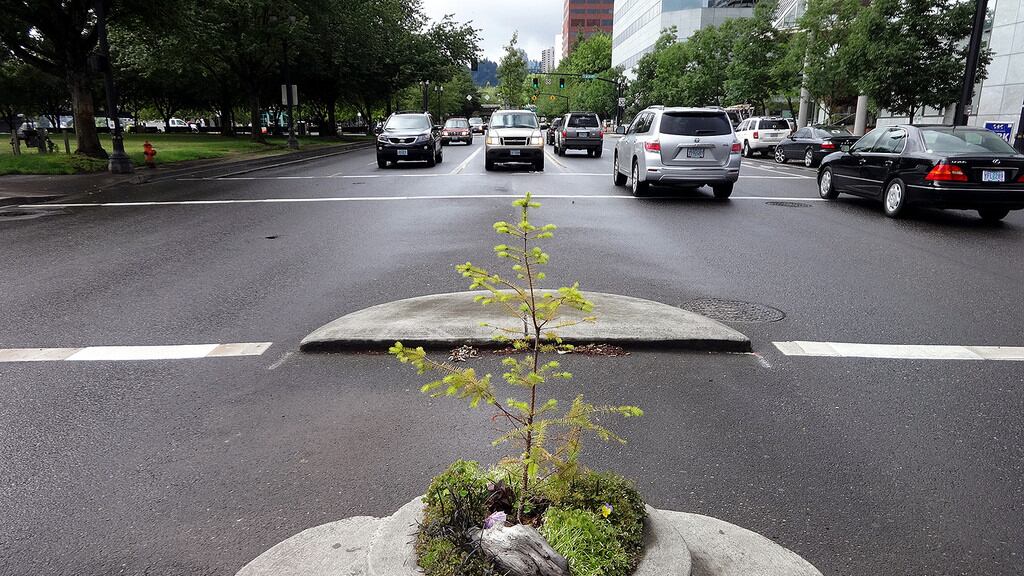One of the standard factoids about Portland—we have lots of strip clubs! Powell's Books is big!—is the fact that we have the world's smallest park. How wacky! Seriously, though, whose idea was this, and why did everyone go along? —Scrooge McGrinch
Talkeetna, Alaska, is the only American city to have had a cat as mayor. This is not because the cat—an orange tabby named Stubbs—was some kind of once-in-a-generation political talent, it's just because no other American municipality to date has installed a cat as its chief executive.
It's the same with Mill Ends Park, the 24-inch circular plot of greenery in the middle of the median strip of Southwest Naito Parkway at Taylor Street. If some other city ever decides to waste its time designating a moldy gym sock as a civic recreation area, we'll be out of luck, but for now, yes, it's true.
The story starts in 1946, when Dick Fagan, author of a catch-all column in the now-defunct Oregon Journal called "Mill Ends," noticed a hole in the street outside his office window. It was intended for a utility pole but had instead filled up with dirt and weeds.
Looming deadlines can drive a man to desperate measures, especially if he was up late the night before doing molly with off-duty strippers and his column is due in two hours. I'm not saying that's what happened in Fagan's case, but he must have been at least somewhat hard up, because he started writing about the weed hole.
It was Fagan who started calling the little patch "The World's Smallest Park," after he claimed to have caught a leprechaun there. This conceit allowed him to make up dozens of subsequent columns out of whole cloth as he purported to describe the activities of the park's leprechaun inhabitants. The city extended official park status in 1976.
Anyway, it was a pretty good scam, but not one I'm likely to imitate. I only see the little people when I run out of gin, and by then my hands are so shaky that the chances of catching one are pretty much nil.

